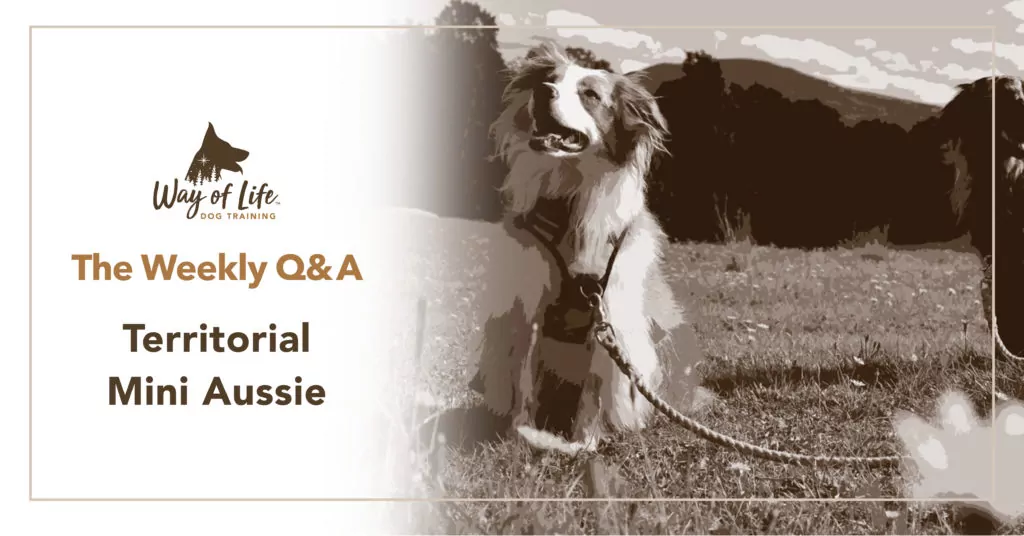
Q: I have a mini Australian shepherd who is going to be 5 in June. She is a very smart dog with a very determined personality. I was pretty good at working the basics with her but didn’t keep up, being busy with the kids and my work. She gets plenty of walks but no training. With age, she has become “possessive” of the village territory in Switzerland where we live and shows no signs of aggression anywhere else. She is also aggressive toward the female dogs in the village, with some aggressive to her and others submissive. We have managed up till now but a neighbor complained recently, saying my dog would kill their dog. This situation has made me anxious and things are getting worse with my dog feeling my anxiety. I would love your opinion.
A: When we spoke, I was able to have a better idea of the village situation that you have going on in Switzerland. To be honest, it is a dream to be able to have our dogs not only off-leash but also welcome in many stores and establishments. In my response, I will touch on the prevalent manner of socialization, how premature freedom can translate into territoriality, and your breed of dog.
First, the dogs in your village can meet and greet each other freely. This is theoretically not an issue if all the dogs are raised right, don’t have an axe to grind, and don’t size up and pick fights with the dogs they come across. When we have a dog whose social behavior doesn’t appear to be quite appropriate, it’s important that these opportunities to socialize be rolled back to more basic levels while we focus on healing our one-on-one rapport with our dog.
Regarding your dog becoming “possessive” of the village where you live, again, it can be wonderful to have our dogs walking with us freely in our community. However, it’s also important to appreciate what that can signify for a dog. When we don’t have foundations with a dog and we give the dog that extreme level of freedom, how could that freedom to go around the village, without leashes or boundaries with other people and animals, not translate into territorial behavior? If we have foundations at home, we don’t have dogs claiming things out in the world. They do not seek control because they can rely on someone already being in control, at home and everywhere else.
Lastly, know that I get called a lot about Aussies and that I have found the issues with mini Aussies to be particularly pronounced. It feels to me that what they lack in size, they seem to make up for in intensity. These dogs need that proverbial job for sure but here’s the thing – the dog does not need to be in agility or herding to be fulfilled. Sure, there are dogs that really need that outlet. But you can challenge your dog deeply by teaching her the job of being a great companion for your kids. Instead of thinking of kids and dog as separate and conflicting responsibilities, think of the ways that you can involve the kids in teaching your dog to be their “service” or “therapy” dog – walking nicely on a leash for them, learning tricks, and resting quietly as they read their homework to her. The children and the dog can therefore become an integrated responsibility.
In closing, it is wonderful for dogs to experience the kind of freedom you have access to. But it’s even more important for them to be sound and strong, so that they can enjoy that freedom appropriately, safely, and for the good of all.
For more pointers on dealing with behavioral issues, access the free PDF Let’s Fix This: Ten steps you can take right now to address just about any behavioral issue.